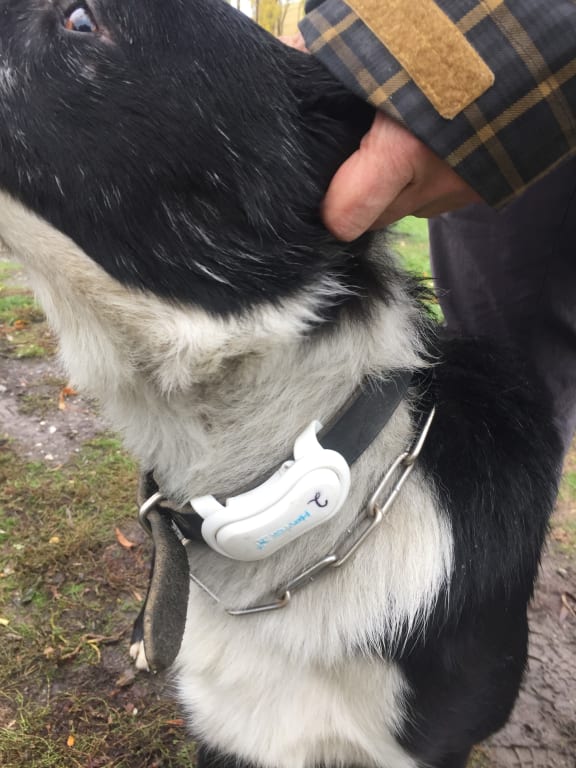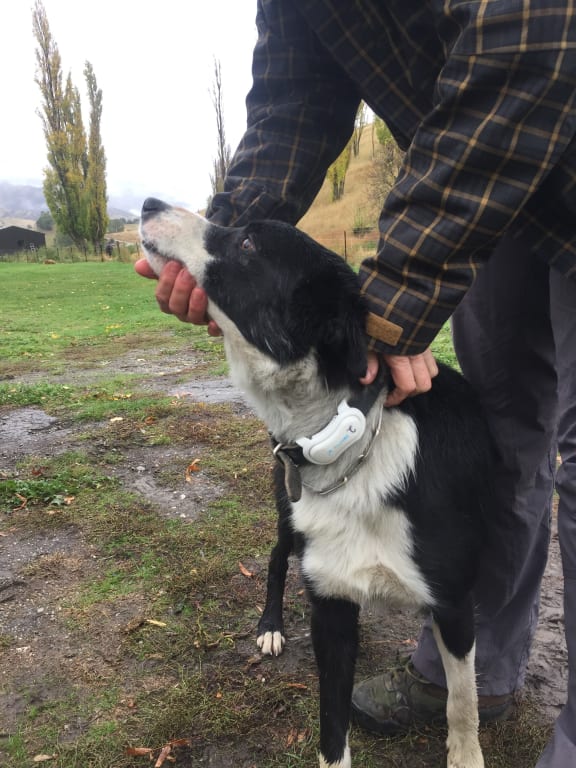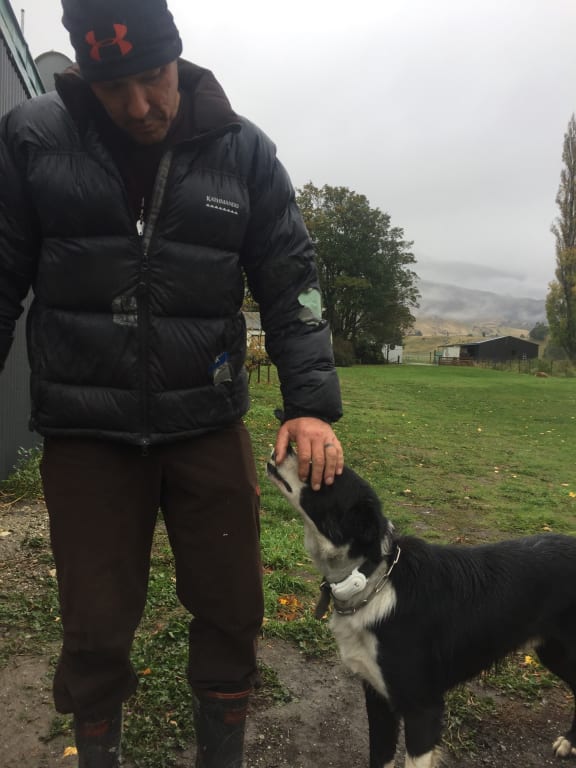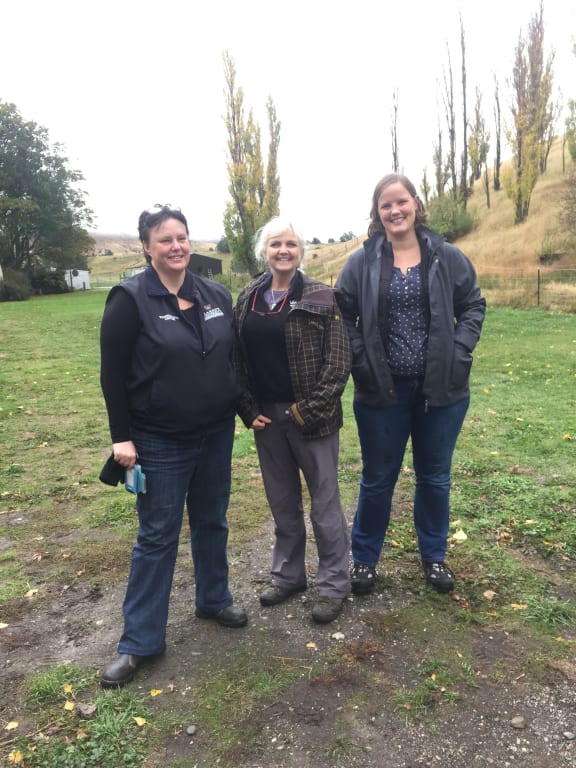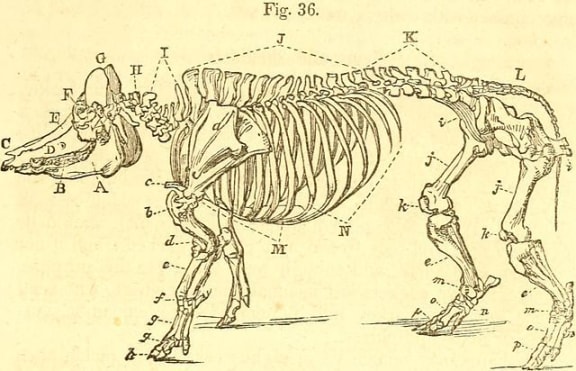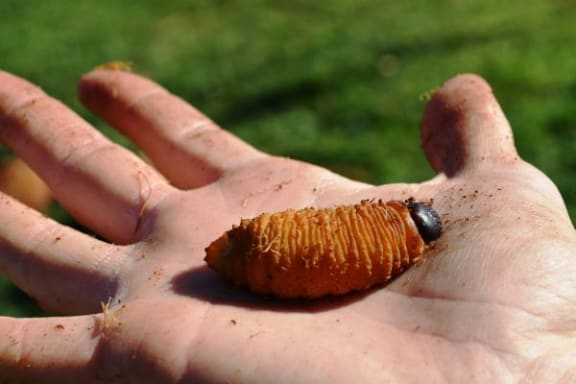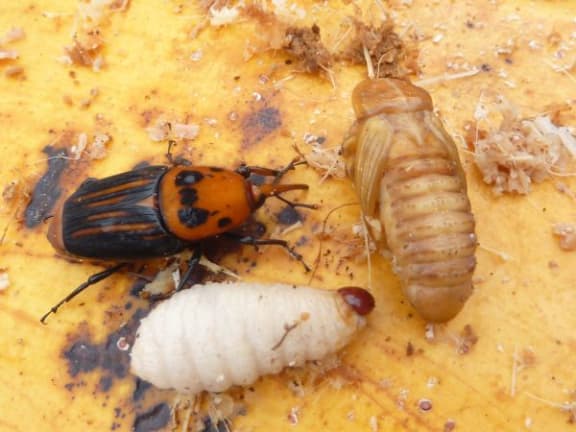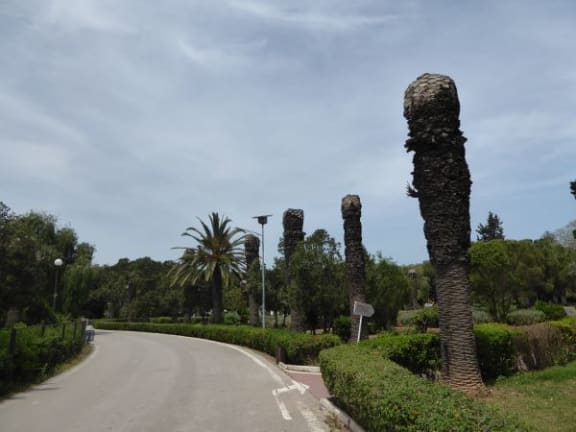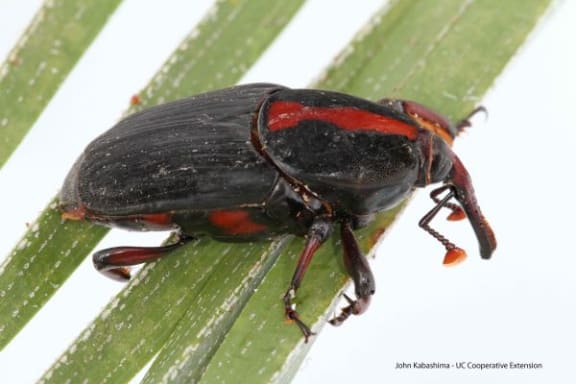This Way Up for Saturday 20 May 2017
This Way Up for Saturday 20 May 2017
Synthetic life: can we build it? Tracking farm dogs, net neutrality and the date crisis involving an evil weevil.
Synthetic life – can we build it?
In 2003, The Human Genome Project successfully read and published an entire human genome – 3 billion base pairs that make up the code of life.
It took a global team of scientists 13 years and cost billions of dollars, but it ushered in a new era of medicine, as well as technology now used to sequence and read DNA in the lab.
Today you can get your genome read for under $1000, and now scientists want to create new genomes from scratch.
At the recent GP-write conference in New York, 250 people from 10 countries gathered to discuss ethics and to pitch ideas, from plants that can sniff out explosives to microbes that could be used to fight obesity.
Sharon Begley is a senior science writer at STAT who was at the conference.
"As scientists aiming to create genomes from scratch see it, nature had her chance — 3.8 billion years, to be precise, the length of time that life on Earth has been evolving and, supposedly, getting more finely adapted and more complex. Now it’s the turn of scientists, who think they can do better." Sharon Begley in STAT
A (working) dog's life
New Zealand is reputed to have more working dogs per capita than anywhere else in the world – an estimated 200,000.
So what's in a day's work? A groundbreaking study is using canine fit bits to find out.
The new project aims to measure the wellbeing, behaviour and activity levels of 150 farm dogs across the South Island.
Data gathered by these sensors could provide future generations of our working dogs with better vet care, shelter, and food.
This Way Up visits a sheep station near Cromwell to see the first of these trackers being fitted with researchers Naomi Cogger and Katja Isaksen from Massey University.
A date crisis with an evil weevil
Not every weevil's evil. Some are important biocontrol agents for plants like gorse.
But one species, the red palm weevil, is threatening global date supplies – this could mean fewer date scones, and more importantly, could contribute to greater political instability in Africa and the Middle East.
Mark Hoddle is an entomologist who's originally from Auckland, and now works at the University of California Riverside.
"The palm weevil invasion has taken over extensive areas of the Middle East, the Mediterranean, and now northern Africa", Mr Hoddle said.
"The relatively recent incursion into Tunisia highlights the ongoing spread of this highly destructive palm pest into new areas that were previously uninfested. Organisations including the US government and the United Nations Food and Agriculture Organisation are worried that it could continue to spread."
It is already causing problems for other major date producers in the region, including Algeria, Egypt, Iran, Saudi Arabia, and Iraq.
Mr Hoddle has fought the pest in California, and has just returned from a crisis meeting in Tunisia aimed at finding some solutions to this problem facing the global date industry.
Tech news: Google's latest ideas and net neutrality

Peter Griffin Photo: Supplied
Some of the new ideas coming out of Google's annual I/O developer conference include smarter cameras powered by AI that can tell what you're taking photos of and a visual positioning system that should help us navigate our way around indoor spaces like supermarkets.
Sticking with Google, the Project Loon balloons have been restoring internet access to flood-affected areas of Peru.
Also, the Federal Communication Commission (FCC) in the US has just voted 2:1 to overturn some legislation protecting net neutrality.
And the latest fallout from the WannaCry ransomware attack – could The Shadow Brokers be gearing up to release more ransomware and exploits on an ongoing basis to paid subscribers?

